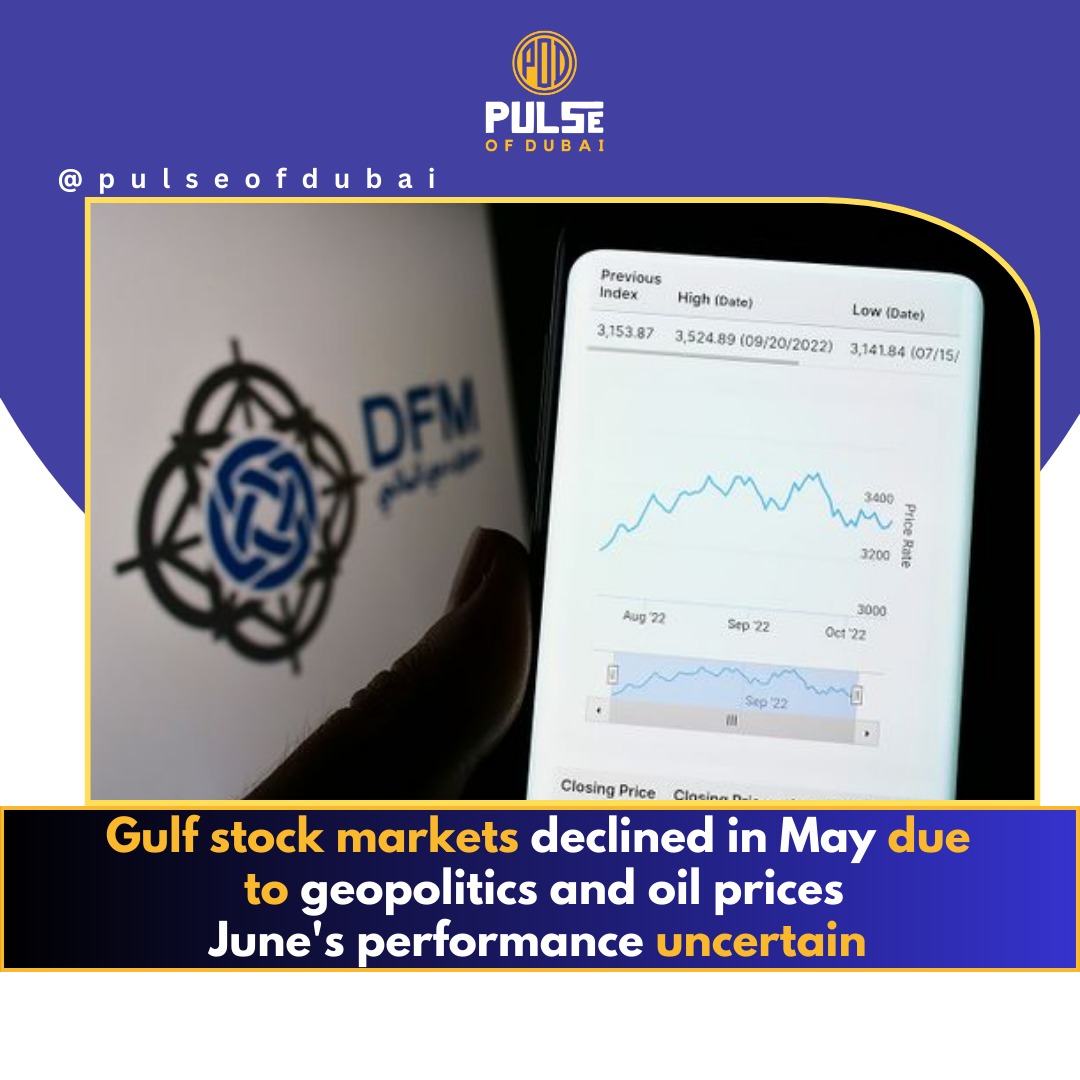In May, Gulf stock markets experienced a notable decline, driven primarily by escalating geopolitical tensions and volatile oil prices. The region, which is heavily reliant on oil revenues, often sees its stock markets react sensitively to fluctuations in global oil markets. As oil prices wavered throughout the month, investor sentiment turned cautious, contributing to the downturn in stock market performance.
Geopolitical tensions played a significant role in unsettling the markets. Conflicts and political instability in key regions can have wide-reaching implications, not only impacting oil prices but also creating a climate of uncertainty that affects investor confidence. In May, such tensions were particularly pronounced, leading to heightened volatility across various financial markets in the Gulf Cooperation Council (GCC) countries, including Saudi Arabia, the United Arab Emirates, Qatar, Kuwait, Bahrain, and Oman.
Oil prices, a critical factor for the GCC economies, also faced downward pressure. Factors such as changes in global demand, production adjustments by the Organization of the Petroleum Exporting Countries (OPEC), and broader economic concerns contributed to oil price volatility. When oil prices drop, the revenue streams for these countries are directly affected, leading to budgetary constraints and reduced economic activity, which in turn dampens stock market performance.
Investors are now looking to June with a mix of caution and hope. The key question is whether the factors that led to the decline in May will persist or if there will be a stabilization and potential recovery. Several indicators will be crucial in determining the market trajectory in June. These include the resolution or escalation of geopolitical tensions, OPEC’s decisions regarding oil production, and global economic signals that might affect oil demand.
Market analysts are keeping a close watch on developments that could influence investor sentiment. A reduction in geopolitical tensions or positive signals from the global oil market could potentially lead to a rebound. Conversely, continued instability and further drops in oil prices could exacerbate the current bearish trend.
In summary, Gulf stock markets experienced a decline in May due to geopolitical tensions and volatile oil prices. The outlook for June remains uncertain, hinging on how these influencing factors evolve. Investors and market watchers will need to remain vigilant, assessing ongoing geopolitical developments and oil market dynamics to gauge the potential for a market recovery in the coming month.









